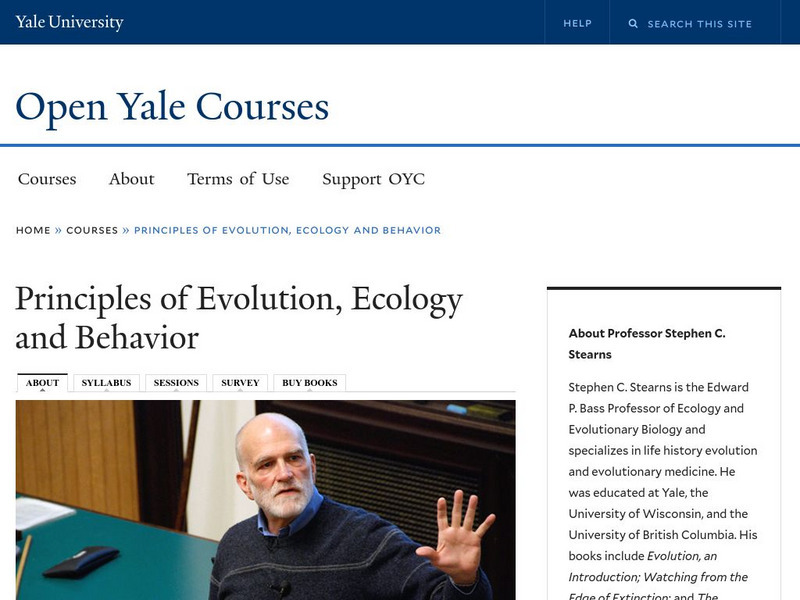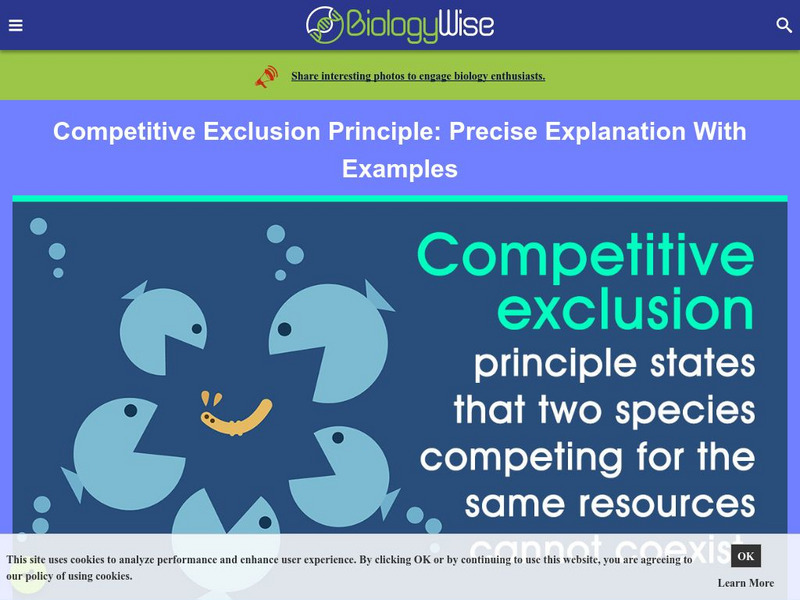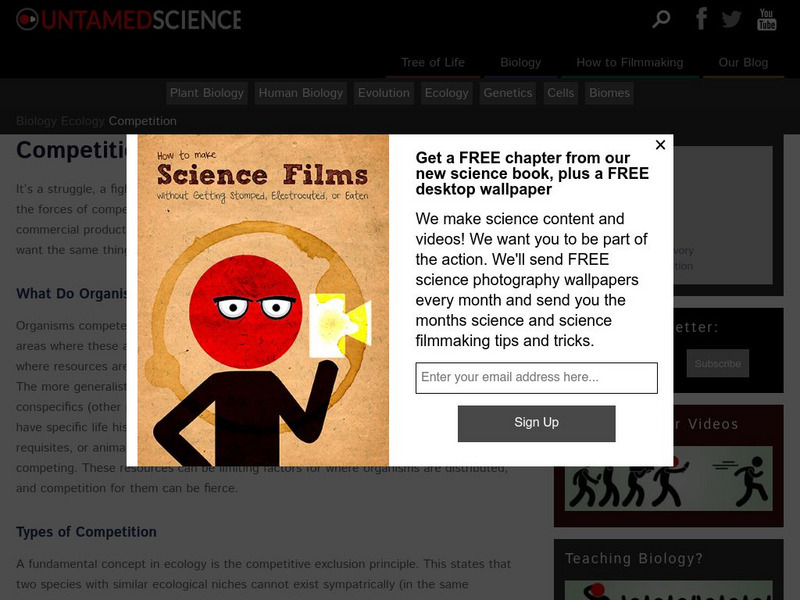Hi, what do you want to do?
Curated OER
Neotaquit Nature Center: Ecosystems, Science, Technology
Students survey their local forest conducting an inventory of tree species and analyzing data of local ecosystems. They design a nature trail, map the area and make a computer generated trail guide.
Curated OER
Animals and the Food Webs that Love Them
Students study the animals that Lewis and Clark would have encountered. In this animals lesson students study the food web and how human populations have affected them.
Curated OER
Nutrition and Energy Flow
In this energy flow learning exercise, students will complete 10 short answer questions based on a food web diagram. Then students will review different cycles in nature including the water cycle, carbon cycle, and energy cycle. This...
Curated OER
Flambe Elements
Eighth graders discuss atoms and electrons as well as atoic structure. They view atomic structure via the computer. Students watch a demonstration in which the teacher demonstrates glass tubing turning yellow in a Bunsen Burner flame....
Curated OER
Underwater Hide and Seek
Students explain why color patterns that are easy to see above water may be difficult to detect under water and experience the problems predators face when searching for camouflaged prey.
Curated OER
Allosaur Survival Game
Students uses this game to see how difficult survival is even for a fierce predator, especially when it is young. It stresses: How much energy it takes to keep a large animal alive or a small one growing, The differences in the fauna...
Curated OER
You've Got to See It to Believe It!
Fifth graders examine smog and particulate matter as two major visible air pollutants. They discover how the pollutants formed and how engineers work on visible air pollution. They design an advertisement for a hybrid vehicle.
Curated OER
Contaminated Drinking Water
Learners see if they can tell if our water is safe to drink by looking at it and tasting it. They perform an experiment using salt and vinegar to see when they can tell water has been contaminated.
Curated OER
Contaminated Drinking Water
Students investigate drinking water. In this water lesson, students discover if the water we drink is safe by participating in an experiment. Students use water and vinegar to observe how drinking water can be contaminated.
Curated OER
Contaminated Drinking Water
Students discover whether their senses can detect unsafe drinking water. In the water activity lesson, students follow procedures to determine whether their bodies can detect contaminated water.
Curated OER
Tree Identification
Students list four ways to identify trees. For this tree identification instructional activity, students use tree identification techniques such as leafs, bark, wood grain, soil type, and climate to create tables and graphs.
McGraw Hill
Glencoe Biology: Principles of Ecology: Chapter Test Practice
A set of fifteen comprehension questions which test over various ecological concepts.
Yale University
Open Yale Courses: Principles of Evolution, Ecology, and Behavior
Access any one of thirty-six lectures from a biological sciences course, in audio, video, and text format. Coverage includes evolution, natural selection, the fossil record, the history of life on Earth, ecological communities,...
Cosmo Learning
Cosmo Learning: Principles of Evolution, Ecology and Behavior
A collection of video lectures introducing beginning biology students to the principles of evolution, ecology, and behavior. The course was taught three times a week for a semester at Yale University. The course discusses concepts of...
Other
Minnesota Dnr: Ecological Principles & Land Cover Characteristics
Lists the six attributes used to identify terrestrial and wetlands areas that are important ecologically. These attributes are based on four ecological principles, which are explained.
Other
Branksome Hall Asia: Design and Inquiry: Sustainable Design
Sustainable design is a philosophy of developing products in line with social, economic, and ecological sustainability principles. In design, it is important to understand the distinction between Green Design and Sustainable Design....
CK-12 Foundation
Ck 12: Episd: Ecosystems
[Free Registration/Login may be required to access all resource tools.] Explore ecosystems and ecology on an introductory level uncovering fact about types of ecosystems and the competitive exclusion principle.
BiologyWise
Biology Wise: Competitive Exclusion Principle
The concept of competitive exclusion, explained here, states that two species cannot co-exist when needing the same, limited resources to survive. The different types are described and examples are provided.
Untamed Science
Untamed Science: Competition
This well-written article explains what competition in an ecosystem is and the different ways it can manifest itself. It also looks at how organisms avoid competition, some disadvantages and outcomes of competition, the impact of a...
CK-12 Foundation
Ck 12: Life Science: Competition
[Free Registration/Login may be required to access all resource tools.] Ecology is the study of how living organisms interact with each other and with their environment. Organisms interact with each other through various mechanisms, one...
Sea World Parks & Entertainment
Sea World: Biodiversity
Depicts biodiversity with a brief narrative. Includes vocabulary, bibliography, and one activity. Subject matter at an upper intermediate grade level or higher.






















